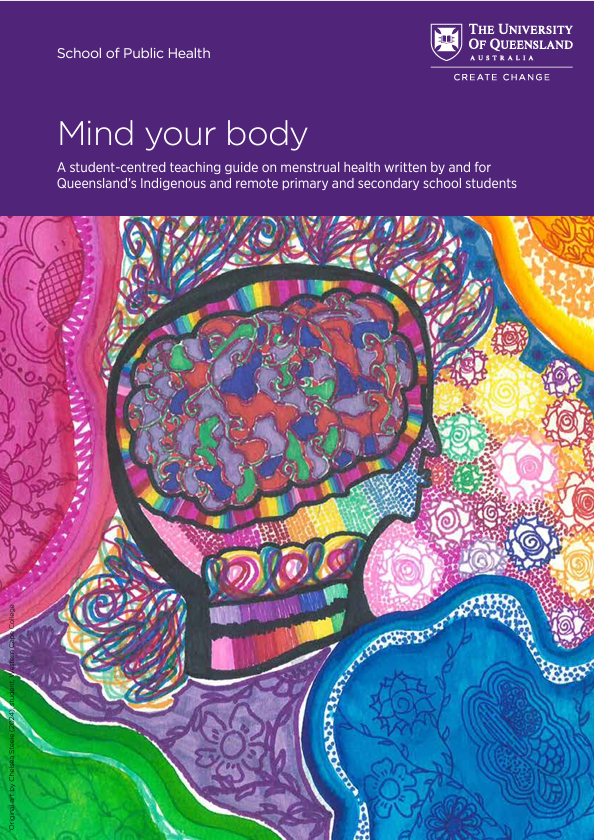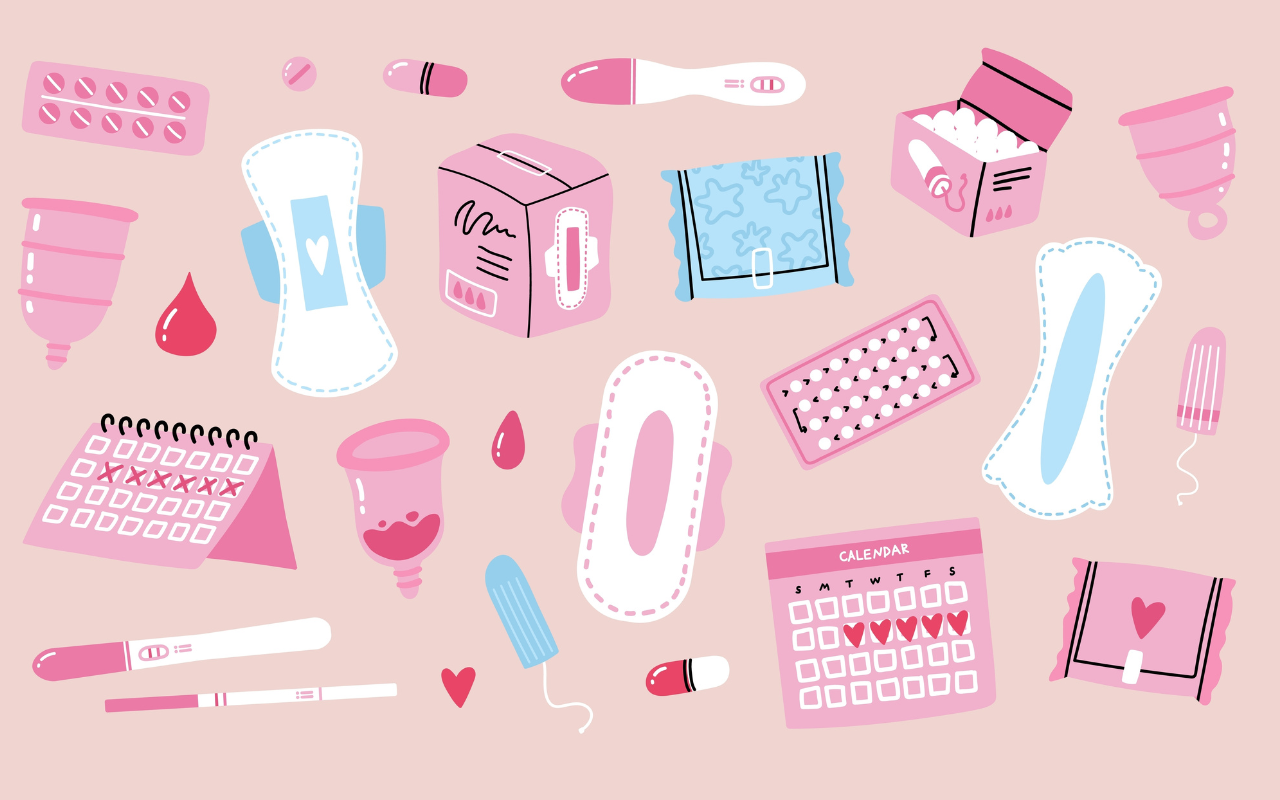An Indigenous-led, student-focused program to educate students about menstruation is attracting support in multiple states. InSight+ spoke to Kaiwalagal, Umaii and Kiwai woman, Ms Minnie King, about a Far North Queensland program eight years in the making.
Ms Minnie King, a Kaiwalagal, Umaii and Kiwai woman from the Western Cape York Peninsula, was reflecting on better menstrual products for her family when she read Associate Professor Nina Lansbury’s work on water and sanitation.
“I was thinking about these things and being quite inventive. And then I read about Nina’s work with WaterAid in Central Australia, how even though her main purpose was to do with water, this issue of menstrual health came up, and the question of whether it affected school attendance,” said Ms King.
“I was very interested. So, with my daughter’s encouragement, I rang Nina. And that phone call basically set us on an eight-year journey and it’s still going,” she said.
Eight years later, they have released the Mind Your Body manual, a free resource for education about menstruation, puberty, consent and period products.

Ms King said that there was a need in her community for a new approach to menstruation education.
“We saw a definite need and a gap in terms of health literacy and health advocacy for the students.
“What I’ve said from the outset is, these students need to know the words for what is inside them. You can identify the ear, nose, mouth – all those things. But what’s inside? I just found that the students didn’t have that information. My daughters did, in terms of menstruating, because that’s how I was taught and my mother was taught, but there are inconsistencies there. So, what we wanted to do was make it a level playing field,” said Ms King.
Ms King said that her approach is to avoid the shame that can shroud this sort of learning, and to treat inner anatomy like any other body parts.
“I stay away [from] those two ‘s’ words, ‘shame’ and ‘stigma’. I just do not talk about them at all during my classes,” said Ms King.
“The first time that we did a session, I walked into the room, and I said, ‘Right, today we’re gonna talk about periods and menstruating,” and Nina just about fell over. And that’s pretty much how I’ve done it. Kids are really intuitive. They expect people to be honest,” said Ms King.
“This is a fallopian tube, this is a uterus, this is the size of a uterus. Hence the name, Mind Your Body. As students move through their life and out of the school system, they’ve got something to recall, to fall back on,” she said.
“To be able to recognise, even within school, that if someone is in pain, they might need to go to the office. So that they can recognise what it looks like to have period pain, what it looks like to be upset, even for the teachers, in terms of behaviour,” said Ms King.
Both researchers have been impressed at the effect of the program in creating a safe environment that translates to students.
“When you ask, ‘OK, if there’s someone new, and they start bleeding in class, what are the sort of things you might do to support this person?’ After eight years, you get great answers. You hear, ‘I would take my jumper off and tell them to put it around their waist.’ To see the shift in the mindset, that they would transfer that safety – it’s really important,” said Ms King.
Consulting with community
Ms King said that the program started with wider talks about the need for menstrual health education in remote communities.
“Nina got together women across the country for a yarning circle to talk about menstrual health and women’s health. Professor Sandra Creamer AM [a climate change lawyer working with the United Nations on the rights of Indigenous Peoples] was in the room, as well as some families from the Cape and the Torres Strait,” said Ms King.
After the yarning circle, Ms King asked Professor Lansbury to come to the Cape. Ms King also spoke with women and traditional owners in the community, and the prospect of a project was well received.
“All of them were very excited about the prospect of doing things with the young people in school,” said Ms King.
Ms King said that the program, which gained ethical approval from the Queensland Education Department, also runs well alongside traditional practices.
“The thing about the country is our ancestors’ footsteps are still here. We still have their imprints. So, we follow in their footsteps. This traditionally has been women’s business. There are still certain things that are practiced, and we don’t speak on behalf of anyone else within the community. It’s that these things can run alongside,” said Ms King.
Although parents could opt out, the program had about a 99% uptake.
“[Mind Your Body] was designed by the students, for the students, on Country, in a diverse classroom. There were family members who turned up to support their children or grandchildren and wanted to understand what we were teaching. There was only a handful of opt-outs, this was a real example of a community coming together,” said Ms King.
Professor Nina Lansbury had been researching around the United Nation’s Sustainable Development Goals (SDG) when she began working with Ms King.
“I’m a non-Indigenous Australian and I work in public health. One of the areas I started to work in was water and sanitation,” said Professor Lansbury.
Professor Lansbury saw there were needs not being met in menstruation in remote communities, reflected in SDG 5 (gender equity).
“Potentially girls are missing school several days a month, which adds up to a lot, in their lifetime, of school, and that becomes an inequity for their educational outcomes,” she said.
Professor Lansbury said that the program Ms King and she created addresses some of those concerns, often in a practical way.
“We have a touch table, so the students can come down and look at the range of products, they’re all clean, they’re all new, and they can pick them up, look at them, giggle and ask questions,” she said.
Some gender barriers overcome
The Western Cape College has about 60% Indigenous studentship.
“One of the barriers was, they said that boys just knew so little about periods. So [the community] said, can you just teach the boys about this? So, we did. We ensure there’s always a traditional elder opening the session, who says something like, ‘Listen up boys, this isn’t a topic you might talk about; for some of you, it will be women’s business. But we’re going to be young men sitting here, thinking of our roles as brothers, and sons, and boyfriends, and future husbands, and we’re just going to listen with maturity.’ And the boys really sat up and listened,” said Professor Lansbury.
“We’ve had grandmothers come and sit in the sessions for the primary school kids and say, ‘Oh, this is really good stuff. This will help us have those chats at home.’” she said.
Professor Lansbury says the guide deals with issues in sections and asks common questions such as: What is puberty? What is happening to my body? What are periods? What’s your experience with periods? What are the products we can reach for? How can we support each other? The book also addresses contraception and consenting relationships.
“Menstruation is nested within this bigger topic of puberty and it’s about being able to make informed choices with full consent. Knowing about what kind of contraceptives are available is a big part of it. And what’s quite concerning [is] that a lot of states teach puberty incredibly late,” she said.
“If we just ask, ‘Has Australia attained gender equity and for SDGs 5 and 6, we’re not doing that well.”
Ms King said that other than a general lack of resources, there are other issues impacting the work of Mind Your Body.
“The cost-of-living crisis is very relevant. Students do not have the best time when they menstruate, as far as products and access to products. It is absolutely fantastic what the state government has done here in Queensland,” said Ms King.
Ms King is referring to the Queensland Government’s 2023 decision to provide 100 000 pads and vending machines, as well as millions of dollars in funding, to state schools.
Ms King said that the team has been talking to the Aboriginal Health Council of Western Australia over the last few years, and the South Australian Health Commissioner for Children and Young People.
“The ongoing value is to upskill, and provide knowledge and information to teachers, to give back to the students. The students develop the guide, which informs teachers, who then teach the guide back to their students. It’s this beautiful cycle that I could never have imagined,” said Ms King.
“The Australian curriculum doesn’t say much on menstrual health. Ideally it should be in the national curriculum,” said Ms King.
“We talk about having a period and dignity, but I think about menstruation as freedom. And I think we need to take a deeper look at how society views these things. These aren’t just barriers. These inhibit people from being free.”
The teaching guide can be downloaded via the Mind Your Body webpage.
Subscribe to the free InSight+ weekly newsletter here. It is available to all readers, not just registered medical practitioners.

 more_vert
more_vert
We ensure there’s always a traditional elder opening the session, who says something like, ‘Listen up boys”, …”and we’re just going to listen with maturity”
Much better than the proposed “voice “ and many other city-inspired out of touch programs.
If we can extrapolate this attitude to other aspects of community life, we can close the gap for real.
Well done!